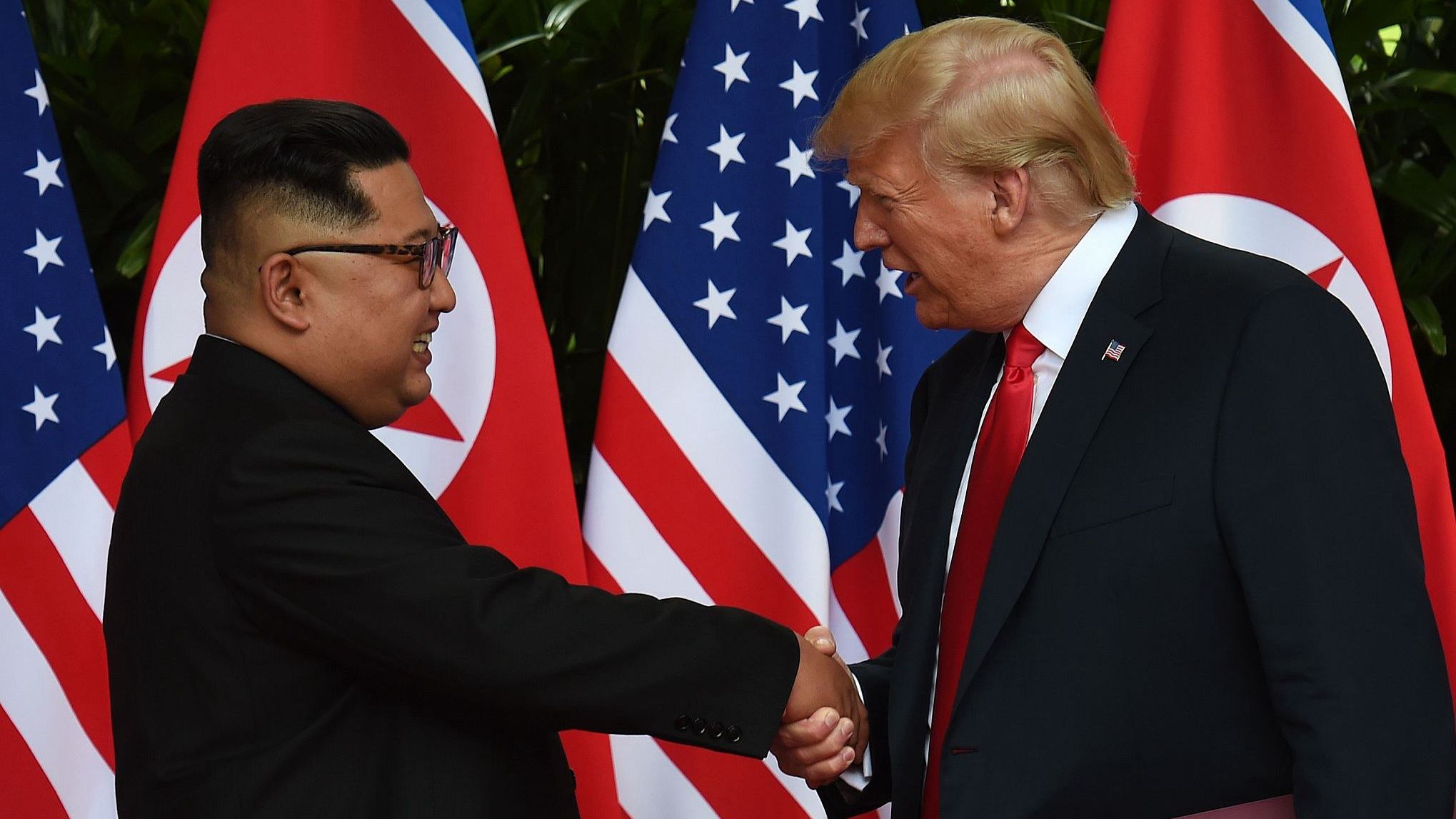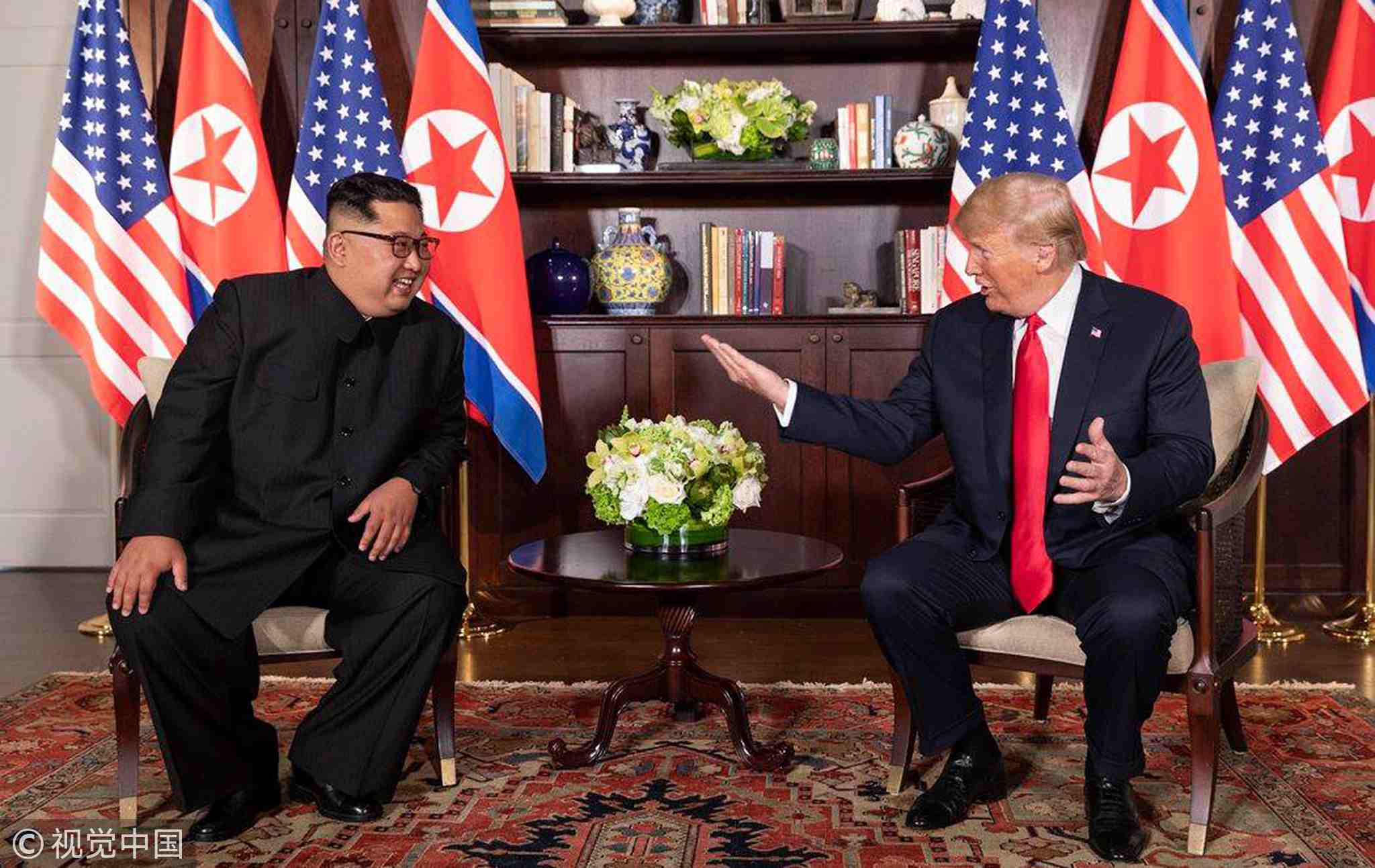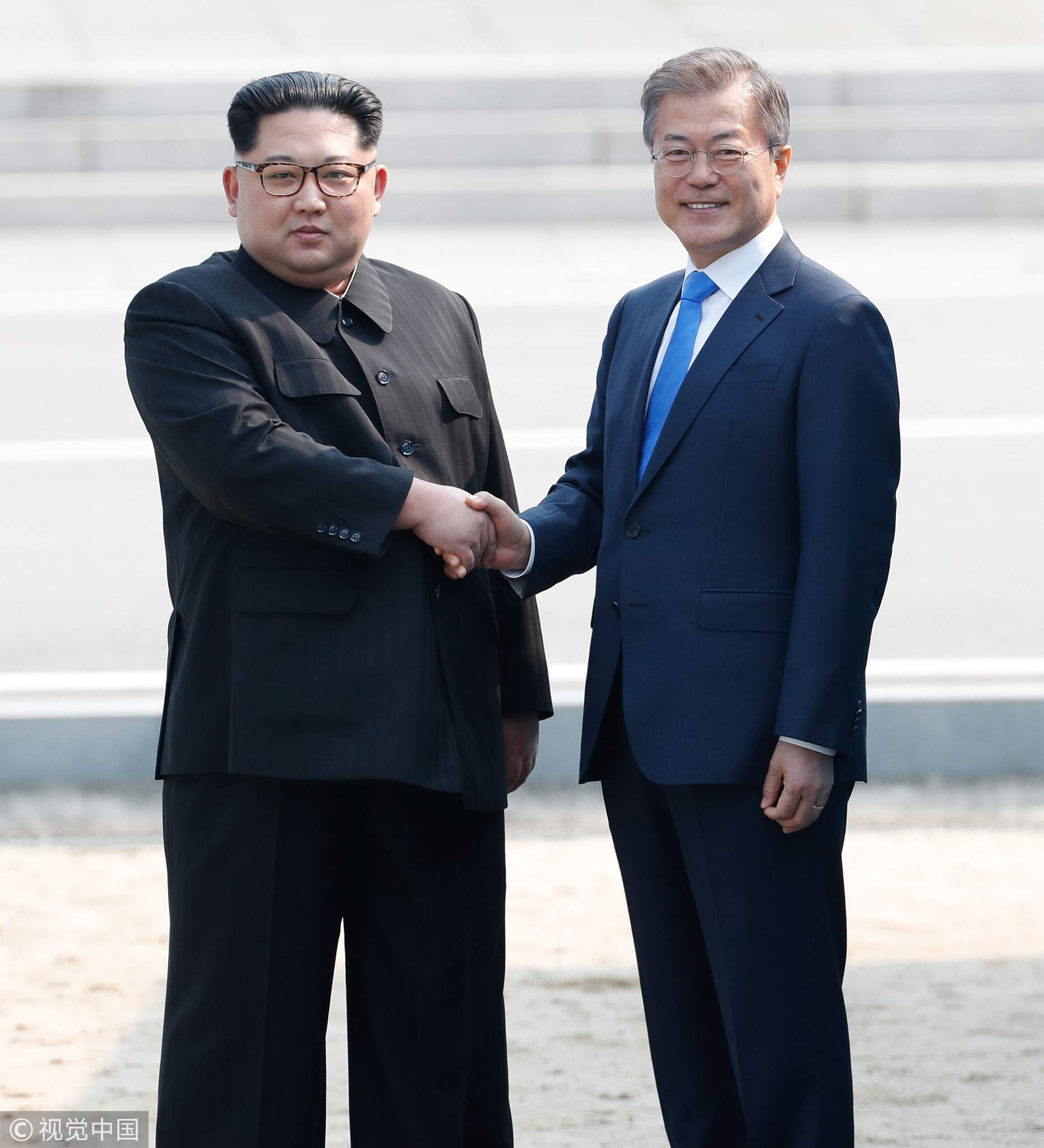
Opinions
10:24, 13-Jun-2018
Opinion: The outcome of US-DPRK Summit relies on support from the East
Dr. Hoo Chiew-Ping

Editor's note: Dr. Hoo Chiew-Ping is a Senior Lecturer in Strategic Studies and International Relations at the National University of Malaysia. She is also a co-founder and co-convenor of East Asian International Relations (EAIR) Caucus and a member of Malaysian Scholars on Korea (MASK) Network. The article reflects the author’s opinion, and not necessarily the views of CGTN.
The much-hyped historical summit between the US president and the leader of the Democratic People's Republic of Korea (DPRK) has ended on an amicable tone by signing a joint statement, of which Trump claims to be “tremendously successful”. China’s Foreign Minister Wang Yi was also quick to issue the congratulatory message, expressing appreciation for the positive outcome and reaffirming full support for the peace process on the Korean Peninsula. However, there are several outstanding issues left unanswered, coming from Trump’s surprised revelation during the press conference, and what do those revelations mean for other major stakeholders like China and the Republic of Korea (ROK).

US President Donald Trump meets with the leader of Democratic People's Republic of Korea (DPRK)- Kim Jong Un at Singapore's Capella Hotel on Jun 12, 2018./VCG Photo
US President Donald Trump meets with the leader of Democratic People's Republic of Korea (DPRK)- Kim Jong Un at Singapore's Capella Hotel on Jun 12, 2018./VCG Photo
Trump is confident that Kim Jong Un wants to make a deal, and he has gotten a deal. Trump's press conference revealed that substantive discussion had took place between the US and the DPRK and those details will be made known to President Moon Jae-in very soon. Among the substantive and detailed plans includes: Kim Jong Un’s agreement to dismantle the missile engine test sites, the US concession on ceasing military exercises and war games with the ROK, that sanctions will continue until the denuclearization is completed, and that a military option (against DPRK) is no longer on the table.
These unexpected developments ignite a serious discussion on whether this summit can truly rewrite the history of Northeast Asia where US-DPRK hostility has changed to amity alongside the inter-Korean peace process, the possibility of complete denuclearization of the Korean peninsula, and the potential withdrawal of US troops from South Korea.
The outcome of the summit is tied to the high stakes for major stakeholders in the region, and China can be regarded as the biggest winner if the main points in US-DPRK agreement are carried out.
Firstly, China has been firm on supporting a denuclearized Korean Peninsula that would ensure peace and stability. Trump is confident that Kim Jong Un absolutely understands that denuclearization means a complete dismantling of “technical and mechanical components” of the nuclear weapons program. This will fulfill China’s long-term pledge since it began the Six-Party Talks initiative in the early 2000s. Trump said he has absolute confidence in Kim Jong Un. It is also revealed that the US team will continue the discussion on denuclearization next week with the DPRK, led by Secretary Pompeo from the US side and a “relevant high-level DPRK official”.

The leader of DPRK- Kim Jong Un (L) and ROK President Moon Jae-in (R) shake hands after Kim crosses the military demarcation line upon meeting for the Inter-Korean Summit in Panmunjom on Apr 27, 2018./VCG Photo
The leader of DPRK- Kim Jong Un (L) and ROK President Moon Jae-in (R) shake hands after Kim crosses the military demarcation line upon meeting for the Inter-Korean Summit in Panmunjom on Apr 27, 2018./VCG Photo
Second, Trump’s revelation that the US will cease military exercises and war games with the ROK will also increase China’s confidence in reducing military tension close to its border. China has supported the DPRK’s claim that the exercises could be provocative, and that the demonstration of the US military might heighten threat perception of China towards US. Citing the wish to reduce the cost of supporting overseas troop deployment and acknowledging the exercises as provocative towards the DPRK, Trump’s decision has indirectly provided ground for political good will to China. Lastly, he added that the peace treaty will certainly also involve the ROK and China.
Thirdly, the transactional nature of the deal has minimized sensitive topics like human rights and democratic values. Trump said he foresees working with Kim Jong Un for a long time, and it’s time for Kim and his people to choose which economic model to follow. He raised the prospect that the DPRK's leader is humane and could be convinced to make the right decision, and he would be happy to assist Kim Jong Un in modernizing the DPRK’s economy and commitment in improving his people’s lives.
Trump is very confident that he has gotten a good deal, and that he found Kim Jong Un to be trustworthy. However, many details are not included in the signed agreement. Thus, the next stage of negotiations between the US and the DPRK will be crucial in nailing down the steps to denuclearization. It’s time for China to step up the game by ensuring that the DPRK follow through on the agreement with the US. The ROK under Moon’s government will also lend full support to the process, and together with Japan, will provide the much-needed financial assistance to carry out the process of denuclearization. The conditions could not be better for the Korean Peninsula to finally achieve the irreversible risk removal associated with the DPRK’s nuclear weapons program.

SITEMAP
Copyright © 2018 CGTN. Beijing ICP prepared NO.16065310-3
Copyright © 2018 CGTN. Beijing ICP prepared NO.16065310-3